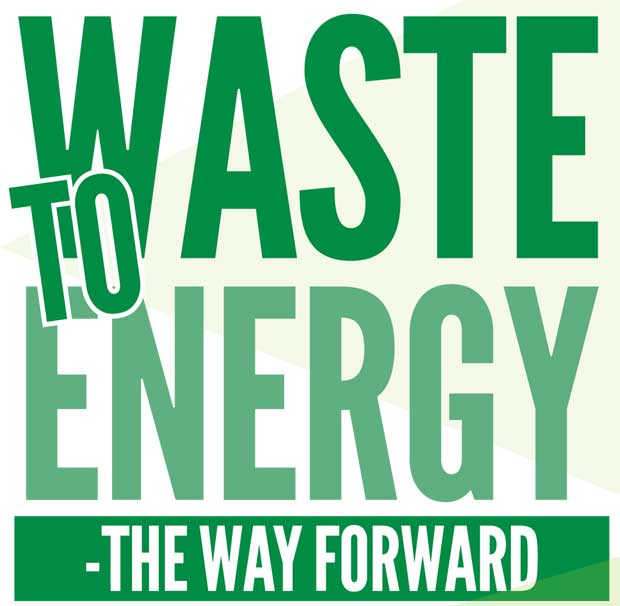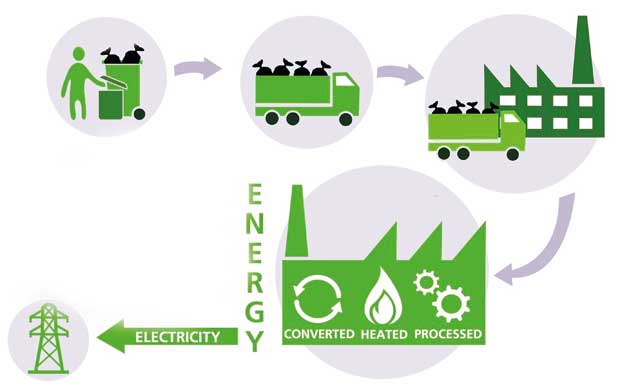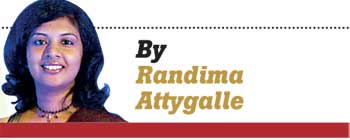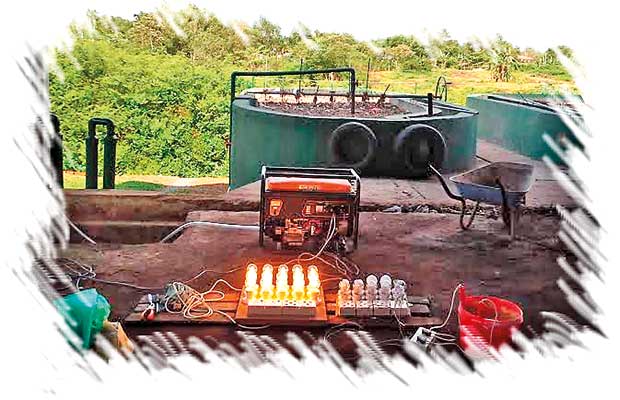Reply To:
Name - Reply Comment
Last Updated : 2024-04-24 22:26:00

 he mandate of a local authority is diverse. Yet, many tend to associate them with garbage disposal, reflecting the heavy public dependency on them. Over the years many waste energy options, have been tested by them, yet colossal mountains of garbage on roadsides in urban settings continue to pile up. This ‘stinking affair’, speaks for itself that to date no sustainable solutions are found for disposal of waste, assuring both public health and environmental safety.
he mandate of a local authority is diverse. Yet, many tend to associate them with garbage disposal, reflecting the heavy public dependency on them. Over the years many waste energy options, have been tested by them, yet colossal mountains of garbage on roadsides in urban settings continue to pile up. This ‘stinking affair’, speaks for itself that to date no sustainable solutions are found for disposal of waste, assuring both public health and environmental safety.
The pilot project at the Kaduwela Municipal Council (KMC) is welcome news at this juncture. Developed entirely by local engineers of Janathakshan (Gte) Ltd, the waste plant creates a win-win situation, where it converts waste in a cost effective manner to electricity and at the same time produces bio-fertiliser (slurry), ideal for organic cultivation purposes.
Its ability to start small, depending on affordability and resource availability of a municipality and gradually build up to have the system required by the municipality is another bonus this mechanism offers.
The pilot system consists of simple manual mechanism for removal of non-degradable contamination within degradable solid waste, a bio-digester, a gas chamber, a generator etc. and operated by the two trained municipality workers. The system can accommodate 1 MT of degradable waste per day and generate about 15 kWh of electric energy and 750 litres of slurry. Energy generated is currently being used to meet requirements at the waste management site in Kaduwela, the power machinery in the compost production unit being one such example. The slurry is yet to be used fully.
“The solid waste management solution piloted at the KMC demonstrates a cost effective and locally relevant solution for a very complicated challenge faced by people, municipalities and the nation as a whole. Moreover, when it is implemented at the municipality level, it will not only convert waste to energy, but cash consuming sinks into self-financing operations, greatly reducing the burden on the National Budget,” observes Dr. Vishaka Hidellage, Assistant Country Director, United Nations Development Programme Sri Lanka.

Although we used to be a nation which mainly generated biodegradable waste that was composted in the backyards and where people recycled old household items and clothes, today we have copied ‘throw things away culture’ of ‘developed countries’, without developing our technological means to safely dispose things we throw, says the UNDP Assistant Country Director.
“The country is continuing to grow rapidly and our urban areas are growing mostly in an unplanned manner. The municipalities, as a result, are faced with the challenge of having to manage increasing amounts of waste.”
The quality of waste has also changed, she notes. Large proportions of plastics along with glass, electronics, clothing, metal etc. are found amongst municipal solid waste.
Harmful chemicals and heavy metals in solid waste contaminate soil and ground/ surface water and could enter food cycles deteriorating people’s health. Dumping waste which is what we mostly practice, also promotes the growth of mosquitoes, rats and other disease vectors, in turn impacting on human health.
Solid waste is also often dumped in or close to environmentally sensitive areas like wetlands, rivers and forest patches causing risks and disasters as eco-system functions are disturbed. For instance, when absorption capacities of wetlands are disturbed it can trigger flooding during rains. In addition to these direct impacts to health, there is the contribution to global warming and climate change, warns the expert.
As a follow up to UN Framework Convention on Climate Change (UNFCCC) Conference of Parties (CoP) 2014 Warsaw, countries were invited to publish their post-2020 climate actions known as Intended Nationally Determined Contributions (INDCs), which were crucial to achieving the ambitious Paris 2015 agreement or Agenda 2030; keeping global warming capped at 20C. Waste management is a prioritised commitment in the INDC and Sri Lanka submitted leading up to Paris CoP 21 in December 2015. “According to INDC report, total waste generated in Sri Lanka is between 6500-7000Mt per annum of which only 39% is collected. Approximately 60% of total generated waste is biodegradable. INDCs envisage the collection rate to be increased to 50-65% by 2030 and, promotion of source separation and recycling options such as composting and waste-to-energy actions.”
The system introduced through the pilot initiative in KMC is timely says Dr. Hidellage who points out that it has the option of integrating the existing composting operation at the municipality more efficiently.
“The hard degradable waste such as coconut shells, branches of trees is separated at the beginning  and this type of waste is not collected by municipalities due to handling issues. The system also facilitates separating small polythene and plastic items mixed in the waste which could be disposed in environmentally manner which otherwise would get in to soil or water bodies, causing problems.” Solid waste management is a rapidly growing area with many opportunities related to management, recycling and reuse, asserts Dr. Hidellage who cites profit making privatized operations in many developed countries.
and this type of waste is not collected by municipalities due to handling issues. The system also facilitates separating small polythene and plastic items mixed in the waste which could be disposed in environmentally manner which otherwise would get in to soil or water bodies, causing problems.” Solid waste management is a rapidly growing area with many opportunities related to management, recycling and reuse, asserts Dr. Hidellage who cites profit making privatized operations in many developed countries.
“Design, construction and operation of the waste management unit requires local engineering and construction expertise. It also requires substantial inputs of skilled construction personnel who are trained by an engineering team to ensure construction meets standards required for the waste management system. Selected staff and labourers of KMC are trained on operation and maintenance aspects of the system. Therefore expanding waste management option to other local authorities will facilitate local skills development and employment opportunities in the sector to meet a growing demand,” she says, adding that in the long run ‘garbage collectors’ could even become ‘raw material distributers’ thereby improving the status of employment.
It is also learnt that Currently UNDP with the Ministries of Power and Renewable Energy, and Mahaweli Development and Environment is engaged in developing national inventories to capture mitigation or emission reductions in the energy sector. “Data from KMC can contribute to the commencement of the waste sector inventories,” pointed out Dr. Hidellage.

Plans are also underway for several other local authorities to replicate this model. Kuliyapitya Pradeshiya Sabha has obtained funds from the North Western Provincial Council to construct a similar unit. The pilot project at KMC which commenced constructions in July last year and completed in December, entailed a total project cost of LKR 10 Million where UNDP funded LKR 6.5 million and the KMC contributed 3.5 million. Project Engineer, Janathakshan (Gte) Ltd, Damitha Samarakoon says that although the cost of the pilot project was high in time to come the cost will be much less as the majority of the local authorities will be able to develop their own units, possibly with public private partnerships.
“The biogas generators of the unit were the only imported item in the entire set up which was costly, however, in future local medium scale investors could join the local authorities to develop their own units at a lesser cost.”
The piloted model at KMC can be adopted at industry level as well where there is more than 1000 kg (1 MT) of degradable waste daily, says Samarakoon who adds that there are over 200 such locations (both industries and municipalities) in the country. Once ‘public confidence’ in these bio gas units is fostered, smaller domestic versions can be promoted to reduce the degradable waste, he opines. By generating a minimum of 2190 MWh of electricity out of nearly 150 MT of degradable waste which is collected daily from the main municipalities in the country, this technology also enables a saving of LKR 40 million annually by avoiding fossil fuel based electricity generation.
Innovation of this kind also enables to use a material as the energy source which is currently incurring large amounts of public money to be disposed of.
“This method needs only a small space and the technology is more cost-effective.”
As he further explains, KMC receives nearly 100 metric tonnes of degradable waste and in time to come the municipality aspires to expand this solid waste management operation by addition an additional 10 metric tonnes to the system. The expansion will enable them to connect the power generated to the national grid and also produce over 7000 litres of bio fertiliser.

Add comment
Comments will be edited (grammar, spelling and slang) and authorized at the discretion of Daily Mirror online. The website also has the right not to publish selected comments.
Reply To:
Name - Reply Comment
US authorities are currently reviewing the manifest of every cargo aboard MV
On March 26, a couple arriving from Thailand was arrested with 88 live animal
According to villagers from Naula-Moragolla out of 105 families 80 can afford
Is the situation in Sri Lanka so grim that locals harbour hope that they coul